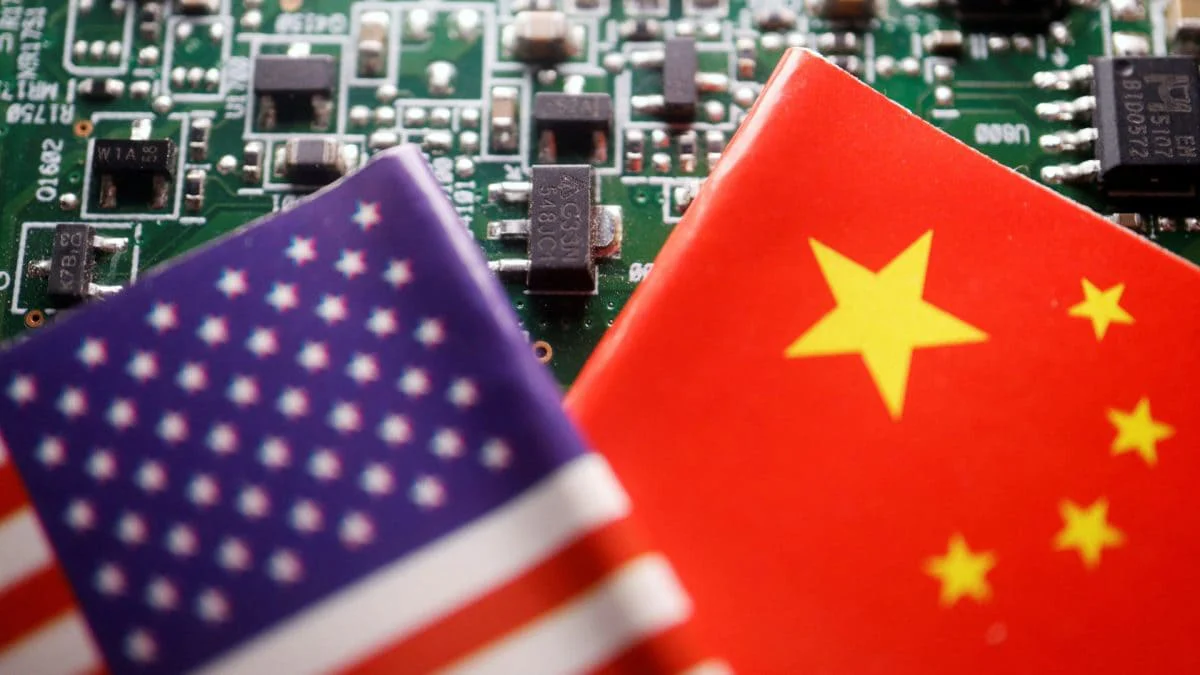Necessary Always Active
Necessary cookies are required to enable the basic features of this site, such as providing secure log-in or adjusting your consent preferences. These cookies do not store any personally identifiable data.
|
||||||
|
||||||
|
||||||
|

A government update shows rules that seek to ban US investment into sensitive technologies like AI in China are now in the last stage of review. CNBC reported that the US rules for curbing AI investment in China may be released in the coming weeks.
The decision to curb US semiconductor investment in China is largely driven by the need to ensure that American investors do not aid the Chinese Military. Under the new rules, US investors will be required to inform the Treasury Department about the investments they make in China pertaining to sensitive technologies that can be used to develop military capabilities.
Such technologies include AI, microelectronics, semiconductors, and quantum computing. The rules draw their authority from an executive order that President Joe Biden signed in August 2023.
“It looks to me like they’re trying to publish this before the election,” Laura Black, former Treasury Official and Advocate at Washington-based Akin Gump said.
According to Black, the US Treasury Office that oversees the rules gives a 30-day window before the rules take effect. The proposed rules were published in June 2024 and the public was given an opportunity to give feedback. US companies and individuals were expected to determine which transactions should be restricted in the draft rules.
The latest move to curb US investment in China is part of the efforts that the Biden administration has taken to enhance national security. With the US AI investment review, the government wants to restrict the flow of American technology, capital, and expertise that could help the rival country to modernize its military and undermine the US.
In June 2023, the Treasury Department made proposals on US investment in national security technologies and products in countries of concern. The proposals included an outright ban on specific investments to China.
“The potential military, intelligence, surveillance, and cyber-enabled applications of these technologies and products pose risks to U.S. national security particularly when developed by a country of concern such as the People’s Republic of China,” the Treasury Department said.
The move by the US to curb AI chip investment comes at a time when the trade rivalry between the two countries is at its peak. In October 2022, the US passed sweeping export controls designed to restrict access of China-manufactured advanced semiconductor technologies, especially those that are used in AI applications.
In August 2024, the US government announced plans to outlaw Chinese-made EV software in the country. The ban is informed by rising concerns that EV vehicles collect sensitive data from American infrastructure and transmit it to the Chinese government. The Biden administration plans to escalate the Chinese autonomous car software ban by disallowing Chinese manufactured vehicles that use advanced wireless communication systems.
Earlier this month, the Wall Street Journal reported that Chinese hackers breached US broadband provider networks in a cyberattack associated with the Chinese government. The wiretap data hack targeted communication infrastructure and affected top US telcos including AT&T, Verizon Communications, and Lumen Technologies.